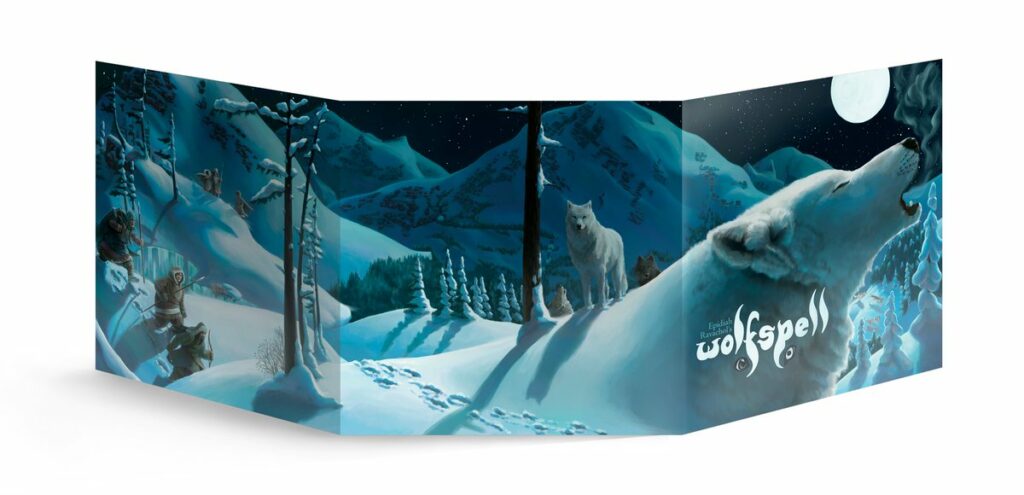I’m on a study project to improve my understanding of roleplaying games. To this end, I already have two reading projects, A Game Per Year and An Adventure Per Year. This is the third, with the goal of reading or playing 52 games made in the last few years. Originally I considered making this “A New RPG Per Week” and that’s where the number 52 comes from, even though a weekly schedule is probably not within my abilities.

Wolfspell, a roleplaying game by Epidiah Ravachol, has a unique presentation: As seen above, it’s published as an LP cover. There’s no book or booklet. The entirety of the text of the game is on the inside cover, as a series of tightly expressed rules and game mechanics.
In Wolfspell, stalwart adventurers are transformed into wolves and must fulfill the conditions of their curse while balancing between their old human and new wolf natures. The curse doubles as an origin story and a quest. One of the more unusual curses has a pack of sorcerous wolves swap bodies with the player characters, taking their humans forms in turn to explore the civilized world.
It feels like a single game would take a few hours, resolving the scenario presented by the curse, followed by a coda where we find out whether the characters remain as wolves or return to human life.
The player character positioning is interesting because it draws on the assumed player’s knowledge of what a “stalwart adventurer” is in the context of an roleplaying game. It’s based on a paradigm where the character is a mechanism that allows the player to access the game world to solve plot, except now as a wolf. The experience of a wolf is not applied to three-dimensional fictional characters but rather to this echo of an experience of playing other games.
The mechanics consist of moves the wolves can do, where their human and wolf natures are represented by dice and the rolls can result in one or the other being ascendant. The GM, called Winter, can inflict difficulties on the wolves but they can alleviate the worst by grooming and engaging in social behavior.
I’m always interested in roleplaying games that convey design through some other means than game mechanics. Here the choice is particularly unusual in that while the functioning of the game has been expressed in almost purely mechanical terms, the LP cover presentation suggests vast emotional vistas, rock operas, something that can’t be expressed in human terms.